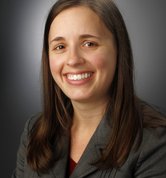Stand up for the facts!
Our only agenda is to publish the truth so you can be an informed participant in democracy.
We need your help.
I would like to contribute
No progress
A shortage of doctors and nurses afflicts rural Virginia, and Bob McDonnell promised a cure when he ran for governor in 2009.
"The McDonnell administration will expand loan forgiveness and scholarship programs for health care professionals with an emphasis on placing health care professionals in rural areas,” the campaign wrote in a policy paper.
This promise is very similar to another one we rated recently, that the McDonnell would train more doctors and nurses to practice in rural areas, which we rated In the Works.
And the results here are also similar: Lots of study but no direct action in the way of new state policies or funding to entice medical professionals to practice in underserved areas.
The General Assembly, during the recession in 2009, eliminated $936,000 for a state program to repay portions of college loans for physicians and other health care professionals willing to practice in rural areas. McDonnell took office the next year.
Today, the state still receives $400,000 from the federal government for the Virginia State Loan Repayment Program but does not provide the required 50 percent match. The match comes from the local clinics or hospitals that will hire the physician. In fiscal 2011, there were five awards under this program. In 2009, there was one award.
There's one other state program that provides scholarships to health professionals in return for a commitment to practice in underserved areas: the Virginia Nurse Practitioner and Nurse Midwife Program. It awarded three scholarships last year, compared with five in 2009.
State money for active scholarship and loan forgiveness program has remained relatively flat, Health Commissioner Dr. Karen Remley said. She said Virginia is looking to get the biggest bang on for the buck.
"Anecdotally, we have evidence that indicates scholarship and loan programs have much bigger impact for nurses and for other clinicians that are in the mid- and lower- level versus physicians and dentists,” she said.
The General Assembly Rural Caucus created the Health Workforce Development Authority after McDonnell took office to study how to improve health care in underserved area. The administration is awaiting its recommendations on workforce recruitment and retention before creating new policies or programs.
Several officials in the governor's office told us the promise to expand loan forgiveness is a small part of McDonnell's efforts to improve rural health care. They note that the governor signed legislation in 2010 requiring insurance companies to pay for telemedicine services -- diagnoses, consultations and treatments made through audio or video connections between patients and doctors.
They note that two new private medical schools have opened in rural Virginia, although neither receives direct state aid. And King College is planning to open a private medical college in Abingdon in 2013 or 2014. The Virginia Tobacco Commission, a panel charged with spending the state's share of a 1998 settlement with tobacco companies, has contributed $25 million to the $150 million project.
But let's return to McDonnell's specific promise to expand loan forgiveness and scholarship programs for medical professionals who will practice in rural Virginia. Here's a take from Dr. Dixie Tooke-Rawlins, dean and executive vice president at Edward Via College of Osteopathic Medicine in Blacksburg:
"While the federal government provides funding through the state for loan forgiveness in federally designated shortage areas, there is no separate funding from the state,” she wrote to us in an email. "We would welcome a state-supported scholarship or loan repayment program to be instituted for students entering primary care in medically underserved areas.”
We don't feel a pulse from McDonnell on this pledge. But because the governor is awaiting recommendations from a rural health care task force, we can't declare the vow is dead. So for now, we'll rate his promise Stalled.
Our Sources
McDonnell for Governor, McDonnell, Bolling and Cuccinelli Focus on Health Care, Sept. 10, 2009.
Interview with Virginia Education Department Secretary Laura Fornash and Health and Human Resources Department Secretary Bill Hazel, April 18, 2012.
Senate Finance Committee, Analysis of Higher Education budget for 2013-14, accessed May 17, 2012.
Emails from Taylor Thornley, May 9, 16, 17, 22, 24 and 25, 2012.
Richmond Times-Dispatch, "Proposed medical school to serve Southwest, Southside Virginia gets grant,” Oct. 31, 2009.
Email from Dixie Tooke-Rawlins, dean and executive vice president at Edward Via College of Osteopathic Medicine, May 15, 2012.
Virginia Department of Health, Virginia Loan Repayment Programs, accessed May 17, 2012.
PolitiFact Virginia, "Train more doctors to practice in rural areas,” May 21, 2012.
Interview with Dr. Karen Remley, commissioner of the Virginia Department of Health, and Dr. Maureen Dempsey, chief deputy for public health at the department, May 31, 2012.
Email from Maribeth Brewster, communications manager from the Virginia Department of Health, May 31, 2012.
